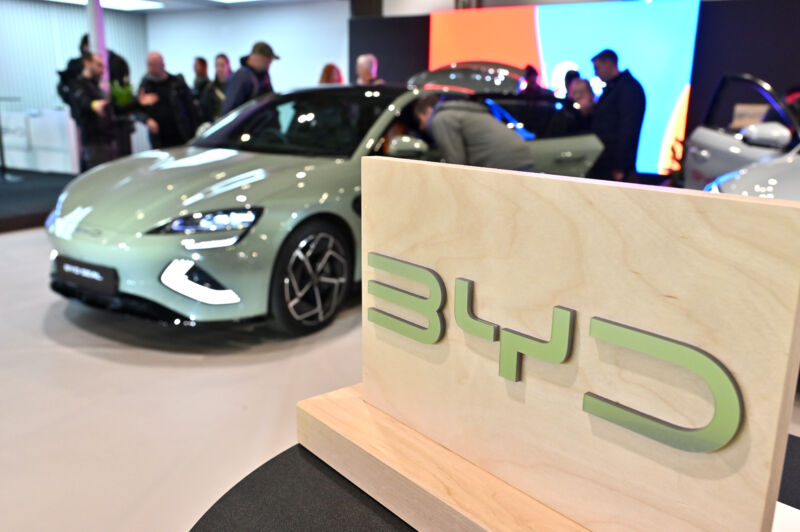
The United States has won an important battle in its war to keep low-cost Chinese electric vehicles from American car buyers. Today, Reuters reports that the Mexican federal government has responded to pressure from the US and will not offer incentives to Chinese automakers, like BYD, that are looking to establish North American manufacturing operations.
BYD last met with Mexican officials in January, according to Reuters, where it learned that Chinese automakers would not be offered tax breaks or cheap land to build factories.
Until now, Mexico has offered foreign automakers generous subsidies that have made the country a cheap place to build cars. Added to that, the United States-Mexico-Canada Free Trade Agreement also makes Mexico desirable for ease of access to the US market, and Chinese automotive part suppliers have flocked to the country in recent years.
BYD in particular has gotten American car companies and policymakers spooked, though. The Chinese government gives it billions of dollars a year in direct aid to help it sell cars in foreign markets, in addition to the same kind of indirect subsidies for domestic EV buyers that the IRS offers here in the US. The company now rivals Tesla in annual plug-in vehicle sales and has recently introduced an ultra-cheap model called the Seagull that starts at just $9,700.
Tesla CEO Elon Musk has warned that trade barriers will be necessary to prevent the Chinese EV industry from demolishing all competition, and US senators on both sides of the aisle have called for trade restrictions, including, most recently, a complete ban on imports of EVs from Chinese brands.
Reuters' sources told it that the Office of the United States Trade Representative was responsible for pressuring the Mexican government, and a USTR official told Reuters that the free trade agreement with Mexico was not intended to "provide a back door to China and others who may be seeking to access our market without paying... tariffs."
BYD may yet succeed in opening a Mexican factory, however. State governments in Mexico, while less generous, also offer subsidies to automakers—in December 2023, the state of Nuevo León gave Tesla $153 million in incentives, and BYD had not abandoned its quest in February after it had already learned of the Mexican federal government's decision.
reader comments
246